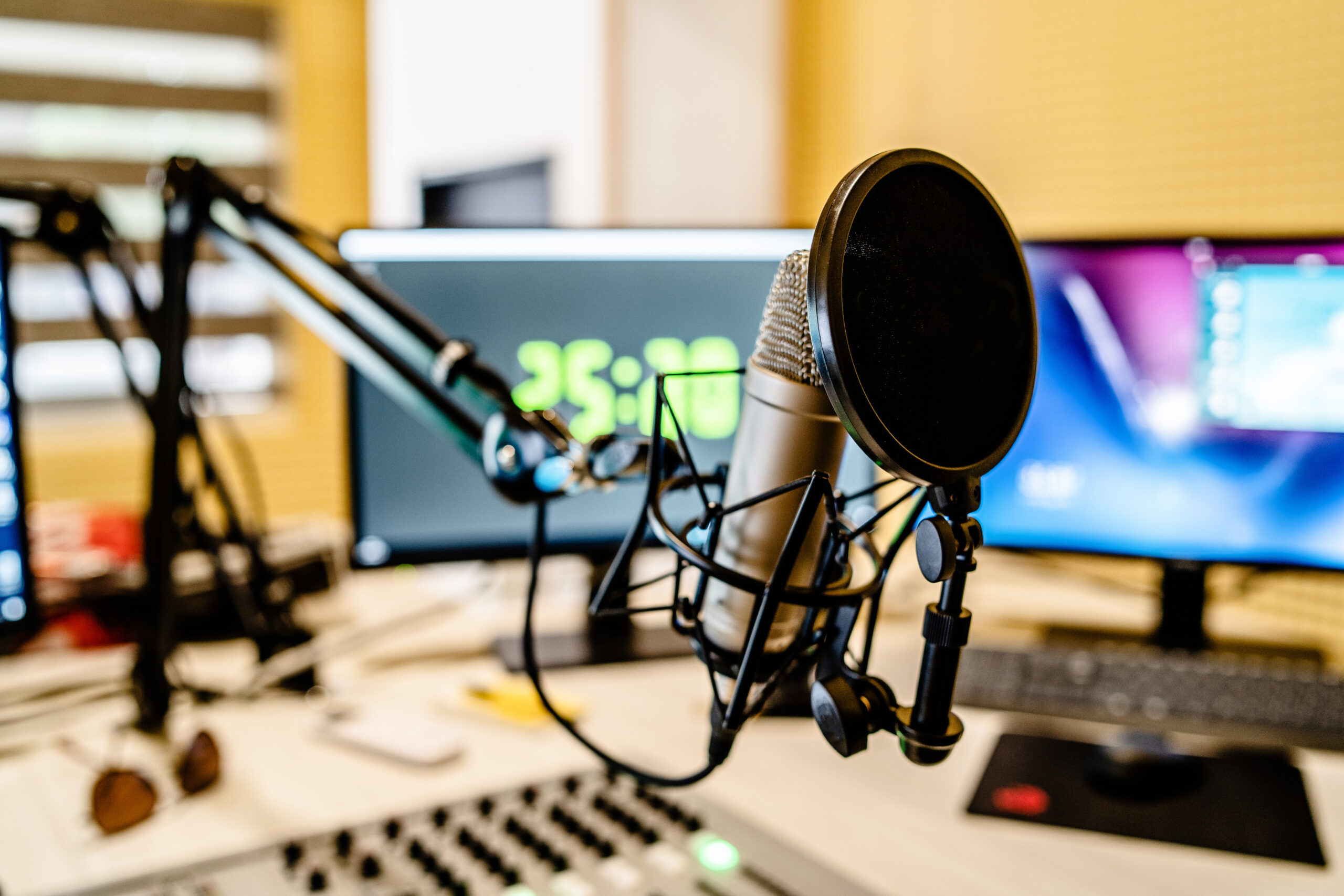Finding My Voice Behind the Mic
Before I ever stepped onto a theater stage or helped shape a production from behind the scenes, I found myself in a tiny radio booth at Emerson College in Boston, staring nervously into a microphone. I was a student with a love for storytelling, music, and performance. The college radio station seemed like a natural fit—but I had no idea how much it would influence the way I approach my work even now, years later, as a producer.
There’s something powerful about radio. It’s immediate, it’s intimate, and, most importantly, it’s all about listening. Not just to sound levels or music transitions, but to people—their stories, emotions, and silences. I didn’t fully grasp it at the time, but those hours spent behind the mic gave me more than just broadcasting experience. They taught me how to tune in, not just to what’s being said, but to what’s not. That lesson has stuck with me across every chapter of my creative life.
The Importance of Quiet
When you’re on the air, dead air is considered a cardinal sin. You’re trained to keep things moving, to fill the space, to make sure listeners don’t drift away. But something funny happens when you embrace a little quiet. You start to hear more. You pay closer attention.
There were moments when I’d cue up a song or pause after a call-in segment, and that tiny break—just a breath—would somehow carry more weight than the words before it. I learned that silence wasn’t always empty. Sometimes it gave the story room to settle. Sometimes it made people lean in.
As a producer, I think about this often. There’s a temptation in theater and entertainment to fill every beat with movement, music, or dialogue. But silence, used well, can be just as impactful. It gives the audience space to connect. And it gives the artists space to breathe.
Learning to Listen, Really Listen
Hosting a radio show meant I wasn’t just talking—I was also receiving. Callers, co-hosts, guests—they all had their own stories, ideas, and points of view. My job wasn’t just to keep the conversation going. It was to make people feel heard.
That skill, though it seems simple, has become one of the most valuable tools I have as a producer. Listening isn’t passive. It’s active. It means putting your ego aside, being curious, and staying present. It means asking better questions and being okay with not having all the answers.
In radio, if you’re too focused on your next line, you miss what’s being said in the moment. The same is true in theater. If I’m not really listening to the people I collaborate with—from the director to the stage manager to the actors—I’m missing the best part of the process: the discovery that comes from truly engaging with others.
The Magic of Improvisation
College radio, especially at a station like Emerson’s, wasn’t always polished. We were students. We made mistakes. Sometimes songs wouldn’t load. Sometimes equipment failed. Sometimes we’d forget what we were supposed to say.
In those moments, I learned how to improvise—not just to save face, but to find new opportunities. Improvisation isn’t just about being quick on your feet. It’s about trusting your instincts and adapting when things don’t go as planned.
That same flexibility is something I rely on constantly as a producer. No production ever goes exactly according to plan. You prepare, you plan, and then something changes. The ability to adjust while staying connected to the core story or purpose is essential. Radio helped train that muscle in me early on.
Creating Connection Through Story
One of my favorite parts of hosting was curating music and stories that made people feel something. I loved the idea that someone out there—someone I didn’t know—was tuning in and feeling a little more seen or understood because of what they heard.
Now, as a producer, I see storytelling on a bigger canvas, but the goal is the same: connection. Whether it’s an emotional scene, a laugh-out-loud moment, or a quiet beat of reflection, I want audiences to feel something real.
Radio taught me that even when you can’t see your audience, you’re speaking to someone. That voice on the other end is real. That connection matters. It’s a principle I carry with me into every rehearsal room and production meeting.
A Foundation That Still Shapes Me
Looking back, I can see how much that radio booth shaped the producer I’ve become. It gave me the tools to listen closely, adapt quickly, and lead with empathy. It helped me understand the power of voice—not just in speaking, but in listening. And it reminded me that the most lasting impact often comes not from the loudest performance, but from the quietest moment that hits home.
Today, when I’m deep in the world of scripts, schedules, and stage lights, I often think back to those late nights at the mic. A young kid with headphones on, telling stories to whoever was out there listening. It turns out, that kid was learning everything he’d need to know about producing—one broadcast at a time.
